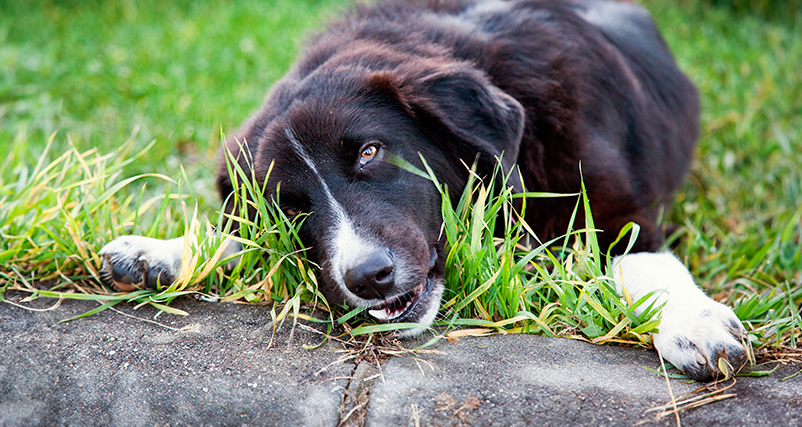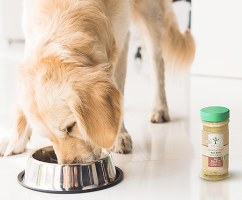You’re watching your sweet pup romp through your backyard, ears flapping, tail wagging when suddenly … they have a
mouthful of grass. Eating grass is actually a fairly common behavior amongst dogs, and something most pup parents
have witnessed!
But is it dangerous for dogs to eat grass? And why do they do it? Most importantly, how do you stop the behavior? If
you’ve got a grass-eating pup, here’s what you need to know to kick the habit.
Should I Be Concerned If My Dog Eats Grass?
Most of the time, your furry companion will be just fine if they eat a few blades of grass. However, eating grass
can be a risky habit for your dog to develop.
The pesticides and herbicides that most grass is treated with can cause health and gastrointestinal issues.
Additionally, your dog risks consuming intestinal parasites, like roundworms or hookworms, that are left in the
grass from animal droppings.
If your fur baby begins to eat grass more frequently, keep an eye out for diarrhea, vomiting, weight loss, bloody
stools or lethargy. These might be indications there’s an underlying illness causing the behavior.
Why Dogs Eat Grass
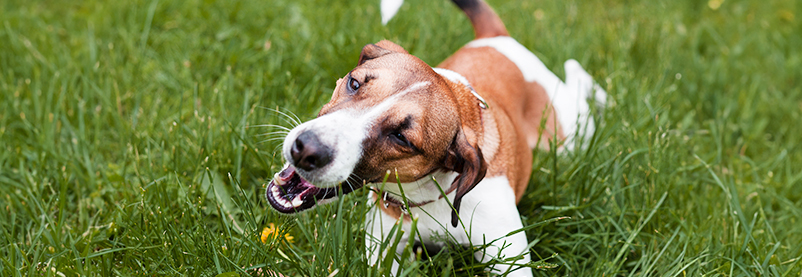
As a concerned pet parent, you might be wondering why your fur baby is chowing down on your lawn … What drives this behavior? There are several possible reasons your dog might be eating grass; here are the five most common causes:
1. Stomach Upset
Some experts believe that dogs might eat grass to induce vomiting when they're feeling unwell. Grass has coarse blades, which might irritate the dog's throat and stomach lining, leading to vomiting. So, if your fur baby occasionally eats grass and then throws up, it could be an instinctual way for them to address a tummy upset.
2. Dietary Needs
Grass contains essential nutrients like fiber, which can aid in digestion. If your dog is not getting enough fiber from their diet, they might be trying to supplement it by consuming grass. It's a good reminder to always ensure that our pets have a balanced diet that meets all their nutritional needs.
3. Boredom or Behavioral Issues
Just like hoomans, dogs can develop behavioral quirks when they're bored or anxious. Munching on grass can be an outlet for some dogs to alleviate feelings of boredom or anxiety. If you observe your dog frequently chewing on grass when they have nothing else to do, consider engaging them in play or providing interactive toys.
How to Stop Dogs from Eating Grass
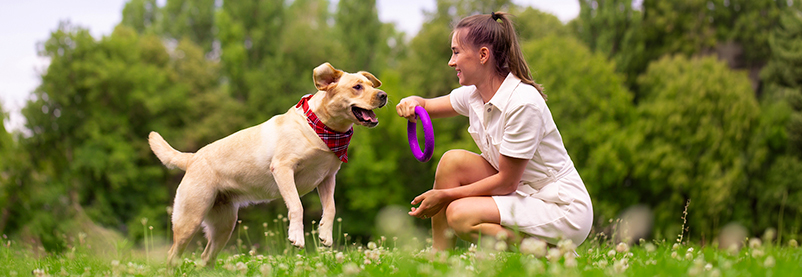
So your fur baby has been chewing your backyard’s grass … What now? Here are a few ways to help stop your dog from eating grass. If these don’t work for your pup, consult your veterinarian for additional help!
- Teach your pup the “Leave It” command and carry treats around to reward them when they obey.
- Feed them smaller meals more often — particularly first thing in the morning or right before bed.
- Switch to a nutrient-dense, highly-digestible food.
- Play and exercise more often, and bring their favorite chew toy with you when you venture outdoors.
- Soothe and support the GI tract with a supplement that offers prebiotics, probiotics, digestive enzymes and soothing herbs, like Gastro Pro Plus.
We love our pups for all of their silly habits — eating grass included (even if we hope they stop). By making sure our pets are getting nutrient-rich food, holistic GI supplements, and plenty of water, we can kick the lawn-chewing habit and focus on enjoying time outside together.
You Might Also Like
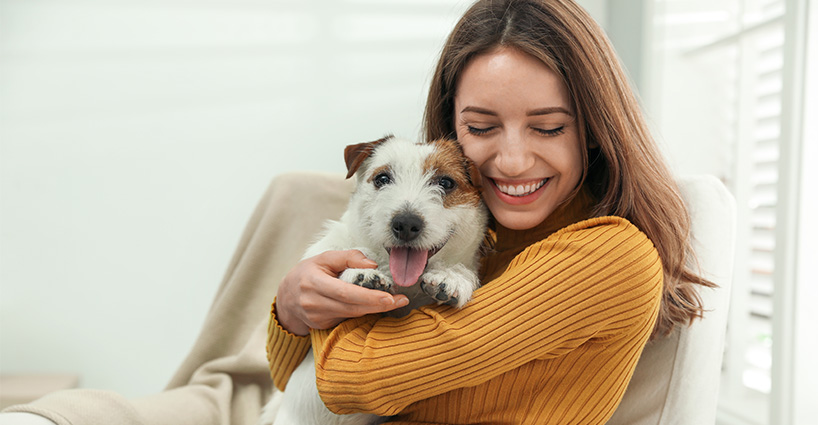
Dogs, Cats And CBD — All The Answers And Benefits In One Place! Read More |
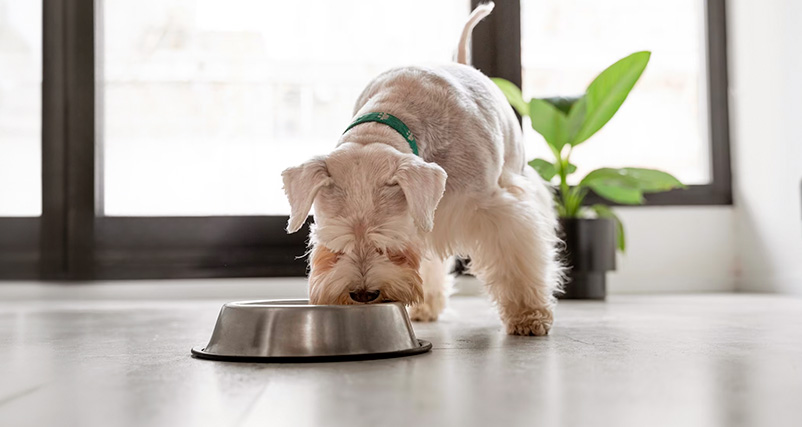
Unraveling the Grain-Free vs. Healthy Grains Dilemma: A Guide for Pet Owners Read More |
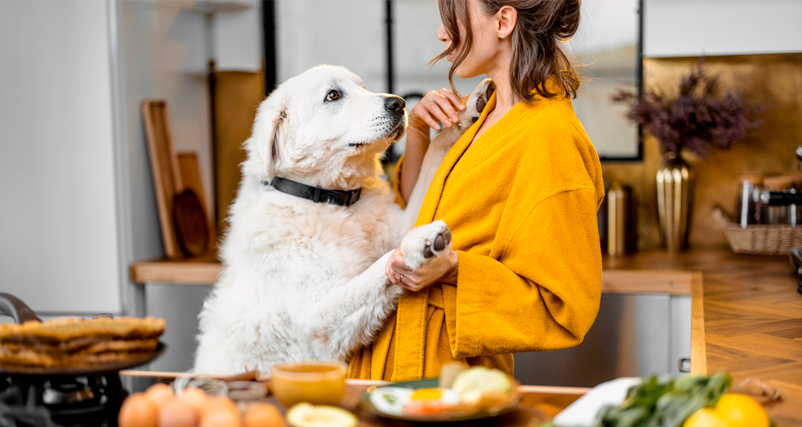
Travel the World Together: Delicious Recipes for You and Your Pet Read More |

Dogs, Cats And CBD — All The Answers And Benefits In One Place!
Unraveling the Grain-Free vs. Healthy Grains Dilemma: A Guide for Pet Owners
Travel the World Together: Delicious Recipes for You and Your Pet

